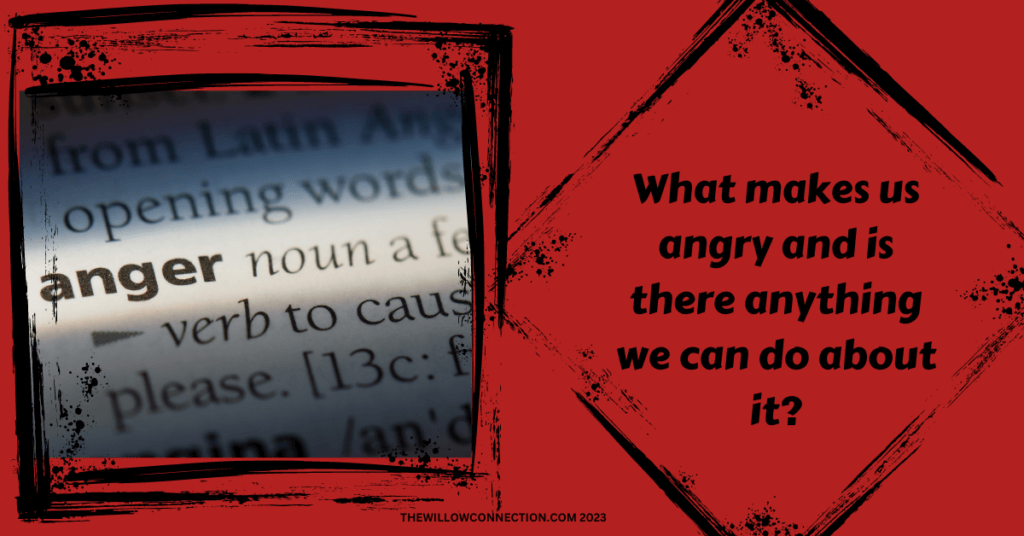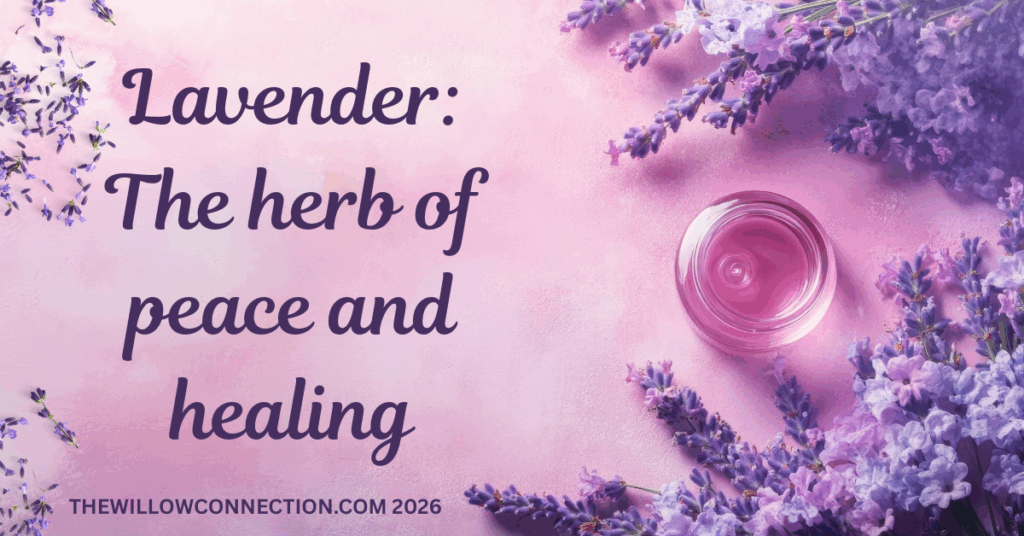Are We Born With It?
I asked a question. I got an answer: Write a blog about how to deal with anger. Whoa, this stuff is heavy. And big. Be careful what you ask for if you aren’t ready to hear the answer! While the rest of the world is writing blogs about Valentine’s Day, I will be delving into the rancid abyss of anger. Great, just great. Write about anger, huh? Okay, challenge accepted. But how do I begin to tackle this emotion without sounding too spiritual, too patronizing, or too hypocritical? I guess I will start with the truth. I have been asking that question myself lately – a lot. I don’t know if I am in any position to be giving advice on this topic since I honestly feel I am struggling to manage my own anger, but I will try.
I have learned a thing or two over the years about the learning process. I also know that there are three main learning styles: visual, auditory, and kinesthetic. However, that list has grown over the years to include more. That should come as no surprise to you, right? Anyway, the theory behind varying styles began in the 1960s, but from the little research I have done it seems there may not be overwhelming evidence to support that an individual is more successful when presented with material to his/her learning style. Okay, whatever. I don’t have the time to write a research paper and cite sources. This is only a blog. It’s a blog about my opinion of anger. What does learning style have to do with anger anyway? Are you starting to feel a bit agitated just reading this? Good, I am on the right track. I’ll swing back around to this later.
What is Anger?
What is anger? The dictionary labels this word as a noun and describes it as a strong feeling of annoyance, displeasure, or hostility. But let’s get real. When we talk about feeling angry, we are talking about the verb; the action of anger. I feel angry when….you fill in the blank. I could easily journal a whole page (okay, probably several pages but don’t judge me!) of things or people that make me feel anger, which is one technique therapists, counselors, and coaches suggest to help identify who or what is triggering anger within you. It’s not a bad idea. For many, writing helps to release it in a safe way. Sometimes you may be surprised at feelings you’ve been suppressing and this can open up some doors to start the healing process. Other people may need to manage their anger by being physical. Exercise, sports, or engaging in a hobby you enjoy helps to channel anger in productive ways. Maybe meditation, fishing, or gardening is your thing. That’s great, do you whatever it is. But what happens when you feel angry all the time or most of the time and joy is rarely a feeling you experience anymore? You can’t deny the negative effects it has on your total well-being. You know it’s eating you up alive and you don’t know how to stop it. It’s isolating, it’s dark, it’s ugly, it’s consuming, it’s painful and exhausting. When you reach this point, you have three options: do something about it, which is going to be painful or let it fester until you become sick, numb, or apathetic, or become so toxic that nobody wants to be around you including yourself. None of these options are palatable, yet only the first option will yield you any positive results. But how? That is the question that plagues us all.
How Do We Learn About Anger?
Remember when I mentioned learning styles? Let’s revisit that for a minute. Don’t think of learning styles in terms of learning a new skill or educating yourself. What if learning styles are, in part, due to exposure during your childhood or conditioning when you are in any type of unhealthy relationship. Maybe you had the best parents in the world, but you were bullied in school or found yourself in a toxic, abusive relationship when you got older. It’s is sad to say, but we all carry some learned behavior with us whether we admit it or not. Sometimes that learned behavior happens later in life or from what we experienced as a child with our limited perspective of life.
When we are very young, we are like sponges. We absorb everything and everyone around us. We learn things – some good and some not so good. Still, we carry on. When we continue to see patterns of behavior from those we live with, we subconsciously believe this is what normal looks and feels like. What did you see? What did you hear? What part did you play in the family unit? Were you the first born, the middle, or the baby? How do you remember your parents’ relationship? Were they good communicators? Did they show each other love, affection, and respect or did they yell and fight? Who cried? Who apologized and who didn’t? Who walked away from confrontation? Who challenged whom? Who was the pleaser? Who dictated the rules? Did rules change to suit individual purposes? Was strict religion a factor? Did you feel safe in your home? Was addiction a problem for either of them? Was a parent disabled or sick? Did both parents work or one stayed home? Was money scarce or controlled by one person? Was the work load equitable and fair? Did you see examples of compromise, sharing responsibilities, and listening? Was appreciation shown to each other? Was respect and compassion present most of the time? Were you shown love and affection? Did you feel like you had to win, compete, or perform for their approval? Did you feel it was even possible to be loved just for being you? Were you able to express your feelings within your family unit without fear? Were you punished for expressing an opinion? Were you a loner? Did you spend a lot of time alone or with another family because their family felt better? Or was there lots of family time with siblings and relatives within your family? Do you have many fond memories or have you erased most of them? This is not an exhaustive list, but it helps create an emotional map and timeline of experiences. I do not wish to throw any parent under the bus and blame them for the behavior of another. At some point we are all responsible for managing ourselves without tossing out the victim card. Parents typically do the best they can and want to ensure a better future for their children. I don’t think anybody wakes up in the morning planning ways they can hurt someone they love. I honestly believed that I was breaking a vicious cycle of dysfunction when I got married and had my own children. Sadly, I failed. It was a horrible marriage and a devastating divorce. The aftermath has followed my children and me, and I am still finding out the extent it caused them trauma. I can’t undo what has happened, but I can try to learn from it and become a better person for those in my life now. It’s not easy. I am very hard on myself. I am always questioning my behavior, my thoughts, and my feelings. Is the anger I am feeling mine or does it belong to someone else? What could I have done differently and how can I do it better the next time? Anger is a normal feeling but it does require self-control and that, my friend, is the elephant in the room.
I am not an expert on anger and behavior, but I believe that anger stems from other emotions such as sadness, fear, and frustration. I think it is linked to trauma, unresolved hurt, suppression, abuse, or neglect. That’s a lot of drama to dissect but realizing that one of these may be a trigger could be helpful. We didn’t come into this world angry. It is something we learned by witnessing or experiencing. A high level of anger is most likely cumulative meaning it didn’t happen overnight. It happened a little at a time over and over again. Something we needed during our vulnerable moments was not being offered. Without knowing any better, we internalized the experience because we were told to “get over it” and move on, so we did. It’s like ignoring a loud noise in your car engine and hoping it will go away so you don’t have to get it fixed. Left unchecked that little noise could cost you big time because you didn’t address it when it was a smaller problem. This is what anger does to us. It grows and grows until it can’t be contained anymore. Have you ever noticed that you find yourself losing it over something trivial like spilling your coffee or somebody taking the parking spot you wanted? It’s ridiculous to waste that much energy on a relatively small inconvenience, but it’s never really about that to begin with. It’s about the bigger picture that we don’t want to look at. It stems back to something we have buried deep inside ourselves and caused us to function in survival mode. This is often when we exhibit a fight, flight, or freeze response.
A Sample Scenario About Anger
So how does this type of trauma exhibit itself as we get older? More often than not, it rears its ugly face in our relationships with our partners, our family, friends, or at work. You must accept that fact that we all carry baggage into these relationships and when we start unloading it on each other is when anger starts to surface. I’ll give you a sample scenario about two people in a romantic relationship:
Your (fill in the blank) stays up late and leaves a pile of dirty dishes on the counter. You wake up to a messy kitchen, which you hate because the kitchen was clean when you went to bed. You’re agitated. They ask you what the matter is and you tell them you don’t appreciate waking up to a mess you didn’t make. They apologize. You accept it and clean up the mess yourself.
A week later, the same thing happens. You are tired and now grumpy. You say a few choice words and make a lot of noise while cleaning up their mess and then this happens:
“What’s your problem now?”
“You’re my problem! You know how much this upsets me!”
“Pfft, it’s not a big deal. I’ll wash them later.”
“When?”
“Whenever I get around to it. If that’s not good enough, do it yourself.”
“Fine! I will.”
“Whatever!”
A month goes by, you get into an argument about something unrelated and insults start flying.
“You’re always in a bad mood!”
“No, I am not.”
“You’re sensitive about everything and nothing makes you happy.”
“What do you mean by that?”
“I can’t joke around with you without your taking it personally. You don’t like it when I stay up late, so I go to bed when you do. If I try to cuddle, you push me away and tell me you aren’t in the mood.”
“Why would I be in the mood when I work my ass off around here and get no help or appreciation?”
“Oh, right! Like I don’t do anything compared to you.”
“Well, at least I clean up after myself. I am constantly picking up after you. You leave a trail wherever you go. It’s like living with Hansel and Gretel.”
“Well, excuse me for not being a clean freak like you!”
“What? I am not a clean freak! I just don’t like being treated like my time and feelings don’t matter.”
“I never said they don’t matter.”
“But you sure act that way when you keep doing things that you know bother me.”
“I’m sorry I am not perfect like you.”
“Why is it so hard for you to show me you love me?”
“Are you kidding me? What does a dirty dish have to do with love?”
“It has everything to do with it! You should care about how I feel. I’ve told you a million times how I feel about this.”
“Nobody will ever please you. You’re crazy! I’m all done!”
They walk out and don’t come back for a few hours.
Maybe you’ll give each other the silent treatment for a few days and then make up. It’s all good. You remembered why you are together and life is good. But then, it happens again and the nasty cycle repeats itself with more and more vengeance. Each time it happens, you sink a little bit deeper into depression. The hurt festers. You become more and more estranged with each other and then you settle for a life you hate because you don’t have the energy to fight anymore. You look in the mirror and don’t recognize the person looking back at you. The betrayal slowly manifests as anger. But anger is a funny thing. When it stems from mistreatment of some kind, we tend to turn our anger inward and blame ourselves, assuming we aren’t narcissists or sociopaths that is. We ask questions like: How did I get here? How did I let this happen? How do I fix it? Can it be fixed? What did I do to deserve this? Then we justify it by thinking things like this: It could be worse. I can try harder to be a better person. Stop expecting people to think and act like I do. I’ll give it some more time.
Knowing Your Limits
Sadly, none of this will change anything unless both of you are willing to change for each other and work at your relationship. Otherwise, there is always one who does more, cares more, loves more, tolerates more, etc. You are left with one decision and that is how you are going to manage your own behavior. You can shut and put up. We know that only works for so long because a person who doesn’t see their actions as wrong will never be wrong and the problems will only escalate into bigger problems. You can pick your battles and acquiesce to keep the peace, which we know only masks the problem, or you can take action. What can you control? What can you change? Rule number one: You can only change yourself! You can start by creating new boundaries. This is a big, scary step in the right direction, but it takes a lot of time. Humans are creatures of habit. We don’t like change. If someone is content using you as their doormat and suddenly you remove the mat from under their feet, you will be met with resistance. A lot of resistance! In short, both sides need to unlearn some behavior and agree to accept the work it will take to create a better relationship where both sides are able to experience what they need. If that doesn’t work, it suggests they don’t really care enough to change. Never expect anyone to change for you unless they want to. If you have tried to communicate, set boundaries, changed your expectations to give them time to meet you in the middle and are still faced with the same problems, it is unlikely the issues will ever be resolved. They can’t or they won’t change their behavior once you have reached this point in your relationship. You can stay in a bad relationship or work environment for a very long time but what is it going to cost you? I will tell you what it will cost you – your peace, your sanity, your joy, and the little time you have left on this earth. If that is a price you are willing to pay, then stay until it’s not. Otherwise, you need to put on your big boy/girl panties and make some tough decisions about releasing that which no longer serves you.
Helping Yourself Take Control
Make a plan. Set some goals both short term and long term. Prioritize what you need or want. Look for areas in your life that could be simplified to ease stress and feelings of entrapment. Maybe that means letting go of things that feel like an obligation or are draining your energy too much. Being pulled in too many directions is exhausting and fatigue can lead to burnout and feelings of resentment, which morphs into anger. Find a support system. You can try counseling or coaching to help you navigate your way out. I don’t advise you do it alone because you need someone you can talk to that isn’t emotionally involved. Take baby steps to regain your strength and self-esteem. Be gentle on yourself. Don’t dwell on your mistakes but do praise yourself for little victories and trying to find your way towards forgiveness and understanding. It takes a compassionate person with a big heart to see things from the perspective of someone who causes them pain or conflict. This can be a step in healing as well. Allow yourself to indulge in things that bring you joy. This helps replenish and fortify you during your metamorphosis. Give yourself permission to feel, to fail, and to get back up and try again. Give yourself permission to rediscover the wonderful person you are underneath it all. It’s truly a leap of faith at this point, but you can do it. Trust yourself. Trust a higher power will guide you through it and hold you up to see promise in a new day. All you need to do is take the first step. You will not be alone. Those who are meant to be in your life will stay. Those who aren’t will teach you a lesson. Sometimes you must let go of what you don’t want to make room for the Universe to give you who or what you do want.
I pledge to my readers that I am going to practice what I preach. I, too, need to make changes in my life. Let’s help each other through it. If you need me, I am here for you.
Love, JoAnne





